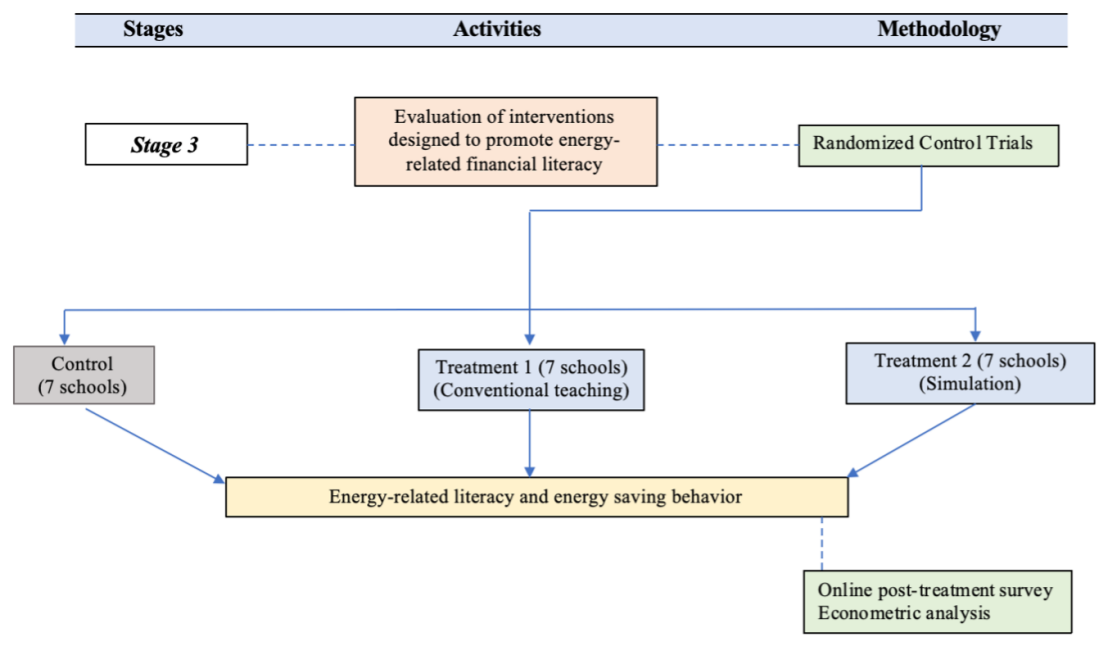E4D Fellow: Bigyan Babu Regmi
Policy evaluation on the impact of energy, sustainability and financial education programmes on students’ energy-related financial literacy and energy consumption behaviour in Nepal by using Randomized Control Trials (RCTs)

Project Duration: 2023 - 2026
Supervisor at ETH Zurich: Prof. Dr. Massimo Filippini, Energy Science Center
Contact:
Project Description

To combat climate change and promote sustainable development, concerted efforts from individuals and households are required. Consumers and households are continually making investments in energy-consuming technologies, such as heating or cooling systems, appliances, motorcycles, etc., and making energy-related choices that have the potential to impact energy consumption for years and decades. As the custodian of the future, decisions and choices of young people have the potential to shape the future of sustainable development. Thus, equipping them with necessary skills and knowledge to incorporate financial and environmental aspects of their consumption/investment decisions is important. As developing countries have limited resources to prevent and respond to the impacts of climate change, preparing young people to make informed consumption/investment decisions is further important for these countries.
Especially for a country like Nepal that has more than 50% of population under the age of 25 and has the most inefficient level of energy consumption in the region, financial literacy and energy-related financial literacy of young people will be crucial for sustainable development. With the focus on Nepal, the specific goals of this project are to (1) analyze the level of financial literacy, energy-related financial literacy, and sustainability literacy among high school students; (2) analyze the determinants of the level of financial/energy-related financial/sustainability literacy of these students; (3) identify effective interventions that could be integrated in the current curricula of the Nepalese high school; (4) measure the impact of educational programs on students’ hypothetical choices of energy-efficient durables; and (5) explore the principal agent problem in making consumption/investment decisions.
The first two objectives of the project will be reached through a large-scale baseline survey among high school students (approximately 5000 students from grades 9-12) in the Kathmandu valley, the capital region of Nepal, using descriptive and regression analysis methods. The other three objectives will be achieved through the organization of the randomized control trials (RCTs) with two education treatments (one a conventional course, and the other an online simulation) in high schools, followed by post-treatment surveys and econometric analyses.
The supervising team led by Prof. Dr. Massimo Filippini has extensive experience in economics reserach in developing countries and especially in Nepal. Our partnership with the higher education institutions will enable us to design and implement our experiments in high schools in Kathmandu. Moreover, support from the central-level and local-level governments will help us disseminate our findings to both the apex policy body and a local-level administration in Nepal and instigate necessary policy reforms.
As the first RCT experiment to evaluate the effectiveness of these multi-dimensional literacy programs in high school level, this project not only fills the gap in the existing literature, but also provides policymakers in Nepal (and in developing countries in general) with empirical evidence on effective interventions that can help equip the young generation with necessary skills in financial literacy, energy-related financial literacy, and sustainability literacy.